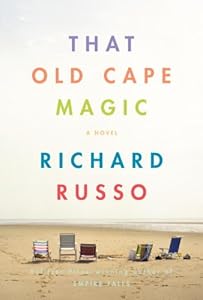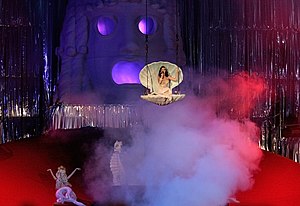I had no idea that
Adam was a writer, until he friended me on Facebook and I started getting announcements and reviews about his book:
The Thieves of Manhattan:
A comic literary thriller in which a down-on-his-luck writer finds himself ensnared in a web of deceit when he puts his name to a fake memoir.
It's his fifth book, mind you, so I don't know what planet I've been on. Planet Mommy, Planet Writer. Adam was another parent of a delightful girl at my daughter's pre-school. We had talked parenting, sleep deprivation, potty-training. Talk about ourselves? Never!
So I finally got off my duff and started reading his book the day before yesterday, finished last night. Fake memoir? Might this also be a social commentary on the publishing aka entertainment industry? The hours I spent reading Adam's book were all too short. I laughed, chuckled and snorted at Langer's humorous semiotics and publishing caricatures, creating a literary world where glasses are called "franzens" (nod to Jonathon Franzen) and cocktails are called "fitgeralds" and "faulkners". A comic literary thriller indeed! These adjectives may seem oxymoronic, but with Langer, he makes the case for a new genre with grace and finesse. All the while Langer's prose tease and stimulate as he weaves his own questions about story as truth.
Fake memoirs, small stories about genuine emotions, pumped-up reality, outrageous fantasy: "The only way you could sell this story is if it was true," an agent tells one of Langer's characters. Well, what if it was? The lines between fact and fiction are blurred in this society where we are encouraged to constantly reinvent ourselves.
And so obviously, I couldn't help thinking about my grandmother as I read in between the lines. STORY AS TRUTH is what Madeleine L'Engle frequently wrote and lectured about, that stories are how we learn about our humanity. She had been ahead of her time, moving between fiction and memoir in the 1970's. But was everything "true"? She always wrote and lectured about "story as truth". How can someone remember everything she/he said and did? There has to be some conceit in holding the story together, even if it the story of our lives. We have to leave some things out maybe, in order to move the story along. "I know it's true because I wrote it in my journal," she would say. Well. That's another issue. We all know how we have our own perspectives and our own personal truth. So maybe the only universal truths are in "story", and that's why we read them. To watch a character's growth or downfall. But I digress.
Adam was kind enough to answer some of my questions late last night and I will share them you here:
Me: What is your process for writing? Do you have the idea first, and then outline? Or do the characters take over and tell you what they want to do?
Adam: Usually it starts with a very small idea and I build on it by continually asking myself questions about characters and building out from there. My first novel
Crossing California began with imagining three characters on a street corner--and once I had begun answering all the questions I had (who were they, where were they, when were they doing whatever they were doing, and so on), I had the beginning of a novel. The same thing happened with Thieves more or less--I started with a guy working in a cafe in Morningside Heights, looking at the book a stranger was reading. The more I thought about that small image, the more questions I had, and the more answers I had to come up with.
Adam: I don't know if the characters "tell" me what they want to do, but part of the liberating quality of writing is allowing yourself to be surprised. I never outline, largely because if I already know the answers to the questions I have, the writing process becomes less an artistic and inspired one than a matter of filling in the blanks.
Me: Which do you prefer, creating the first draft, or the revision process?
Adam: I like them both for different reasons. I love the experience of filling a blank page, of being totally surprised by what winds up on that page, of allowing a story to go any way it can. At the same time, that process can be a bit frightening. Once I have a beginning, middle, and an end, the process of revising is, in some way, more freeing because I know I have a framework upon which I can improvise and that even if I screw it up, I'll always have the basic story to fall back on.
Me: How do you balance practicing your craft with the practice of being a parent?
Adam: Well, I'm sure you know this better than me, it's a major challenge, particularly since we don't usually use babysitters, plus we have kids who don't really like to sleep before, say, 10 PM. I used to have a minimum of eight-to-ten hours of creative time per day; now, I'm lucky if I have half that. Basically, it means I have to try to be very efficient and very targeted, otherwise it's all too easy to let a day's writing succumb to cooking dinner, walking the dog, doing the laundry, buying shoes, and so on, and so on, and so on. I usually set myself the goal of 1,000 words per day--Graham Greene once set he wrote 500 words per day and that always sounded somewhat puny to me, so I decided to double it--now that I've been a parent for five or so years, I have to get those thousand words out in far less time than I was used to.
Thank you, Adam! And thanks to the three of you who read this incredibly long post. Now go and buy his book. I would lend it to you, but Husband has first dibs!




















